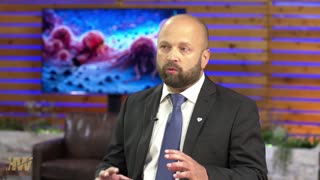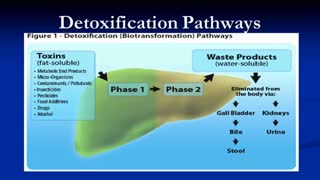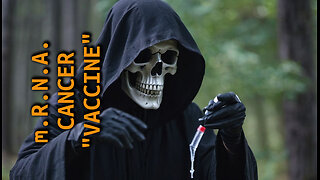What Is Cancer? "Cancer Is Not One Disease"
My name's Erica and in January 2012 I was diagnosed with pancreatic cancer. It's since metastasized into my liver and also a lymph node behind my pancreas.
Every second person will develop cancer in their lifetime. Pancreatic cancer is one of the most aggressive.
One of the things that hasn't changed over the last 30 years is the poor prognosis for people diagnosed with pancreatic cancer. The five year survival rate is only 5%, which is a pretty gloomy outcome for those of us who've been diagnosed with it.
Pancreatic cancer is particularly lethal because by the time it is detected, it's already advanced. That's partly because the pancreas sits in the abdomen very deep and doesn't cause much in the way of symptoms as the cancer develops.
And these symptoms are easily confused with general aches and pains.
I think that's one of the hard things about pancreatic cancer is that the symptoms are vague and that they're easily attributed to something else. They're like stress, air, whole bowel syndrome, cancers.
Form when normal cells in our body start to divide out of control over time.
The growing cancer mass destroys nearby healthy cells. Many of the triggers that cause a normal cell to start to divide out of control are found inside the cell in our DNA. Our DNA encodes the genetic information needed to assemble molecules such as proteins, which are the building blocks of our bodies.
DNA is under constant attack from natural chemicals, environmental toxins and background radiation. Here we can see some toxins, shown as bright particles interacting with the DNA and causing the DNA strand to break or causing mutation in the genetic code. Cancer arises through an accumulation of damage to the DNA.
In a normal, healthy cell, molecules called P53 are activated following damage to the DN. AP53 is part of our natural defense mechanism against cancer. By binding to critical parts of the DN, AP53 molecules help guide the cell's response to the DNA damage. Sometimes the defense mechanism itself can become damaged and P53 is mutated in over half of human cancers.
This means that P53 cannot bind to DNA, and without P 53 / a long period of time, cells can accumulate more and more DNA damage, increasing the risk of cancer. Mutated P53 is just one of thousands of molecular mistakes that can occur in cancer, and modern DNA sequencing and other new technologies can now enable these molecular mistakes to be detected in individual cancers. This is important because.
Even though cancers may look the same under the microscope, we now know they can behave very differently depending on their genetic makeup. What's really exciting is that two different types of cancers that look different under the microscope can share some common genetic characteristics. This means that drugs that were developed for one cancer could also be used to treat the other cancer.
I know that they're working on more personalized treatment.
It seems that pancreatic cancer's been one of those ones that been a bit neglected in the past, but there's also a difficult one to deal with. I don't define myself by pancreatic cancer. That's a big thing for me. I I I feel affronted. When the press continues to say that somebody lost their battle with cancer, that's.
We're all going to die. Does that mean we're all going to die? Losers in the press's eyes? I don't want to focus on battling cancer. I want to focus on living.
-
 1:21
1:21
Fear Not Experience News Network
8 months agoThe New "Turbo" Cancers
133 -
 31:30
31:30
AstrOlena
1 year agoCancer "Growing strong"
2 -
 0:44
0:44
AMB
8 months agoOncologist: "I've Never Seen Cancers Behaving Like This"
810 -
 0:44
0:44
Vigilant News Network
8 months agoOncologist: "I've Never Seen Cancers Behaving Like This"
44.6K10 -
 31:19
31:19
Dr. Jane Ruby
7 months agoTHE ANSWER TO CANCER: "FIRST MEDICINE"
17.8K101 -
 0:44
0:44
FREEDOM - TRUTH - JUSTICE
8 months agoOncologist: "I've never seen cancers behave like this"
674 -
 1:13:12
1:13:12
Diverse Health Services
3 years agoCancer Killers - "the Cause is the Cure" presented by Dr. Jeff
310 -
 32:26
32:26
AstrOlena
1 year agoCancer ♋ "Making the right choices"
2 -
 4:51
4:51
brotherteacherdrunken
1 year agoA few things you need to know about Cancer
4 -
 11:31
11:31
DisgruntledOutcast
4 months agom.R.N.A. CANCER "VACCINE"
148